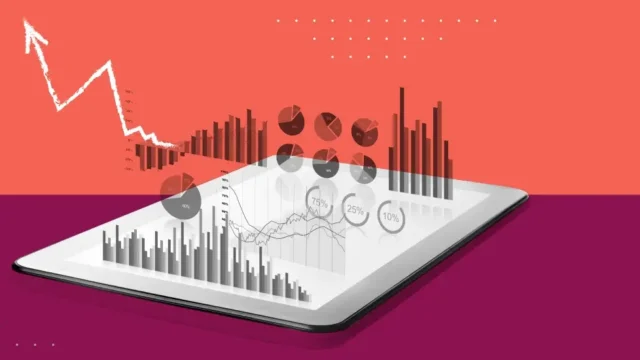
How Analytics Can Help You Better Serve Your Clients
See how analytics is helping accountants improve the efficiency and quality of their work.
Analytics software is allowing accountants to create better, more detailed forecasts, plan more accurate budgets and invest company resources more efficiently. Caseware’s 2023 State of Accounting Firms Trends Report found 94 percent of survey respondents were using some form of analytics and 52 percent were regularly using software automation tools.
Accountants are using analytics to improve the efficiency and quality of their work in many areas. Some of these include:
- Business forecasting: Accountants can use data analytics software to examine millions of transactions from multiple sources to build a complete picture of how a business is performing.
For example, a company might have plans to add four new locations within five years. An accountant could pull in sales, revenue and profit data to discover whether the expansion would make sense financially and operationally. Or a business might want a more accurate sales forecast. Analytics software can look at more data from more sources to paint a more complete picture.
- Building better budgets: Analytics solutions allow accountants to look at millions of pieces of data from multiple sources, such as databases, accounting programs and Enterprise Resource Planning (ERP) systems. This lets them create better budgets based on all current and historical data — not just a sample. Some analytics packages are able to mine data from engagements to create benchmarks, allowing accountants to see how a company compares against its peers.
For instance, an accounting practice could comb through years of engagement data to create benchmarks for sales, revenue, margins and churn for transportation services businesses. The practice could then approach transportation services clients and offer them detailed advice on how to improve their operations by comparing the clients’ numbers to the benchmarks.
Having these kinds of analytics available gives accounting practices a value-added service that sets them apart from competitors and helps them retain clients and attract new business.
- Tax savings: Accountants can use analytics to examine complex tax scenarios to discover potential savings. For example, a company could look at several investment scenarios, modeling each with analytics software, to find out which is the most beneficial from both investment and tax perspectives.
- Investment optimization: Accountants who participate in investment decisions can use analytics to optimize how they invest their money. For instance, they could look at behavioral patterns in consumers, based on sales or even social media data, to uncover new trends and generate better profits.
- Practice management: Analytics can help accounting practices and departments boost their efficiency. They allow offices to track team workloads, deadlines and tasks at a glance. They can also help track engagements by displaying the status of deliverables and showing whether documents have been reviewed, and by whom. Visualization tools embedded in analytics solutions make it simple to see how a practice is performing and where hours are being spent.
- Regulatory and quality management: An analytics solution can actively monitor engagement quality and reduce risk by identifying and flagging potential problems when they occur. It can also suggest opportunities for internal process improvements. This boosts overall engagement quality and client trust, while increasing client retention rates.
For example, an analytics solution can actively monitor engagement quality by making sure all work meets established quality management standards, such as the International Auditing and Assurance Standards Board’s (IAASB) ISQM 1 standard on engagements. If the software detects a problem, such as inconsistent process mapping or a failure to lock down the engagement, it can flag it for immediate correction.
Accounting analytics attracts clients and talent
Employing analytics reduces the time accounting staff spend on manual, repetitive processes. This allows teams to spend more time on valuable and mentally stimulating work, such as strengthening relationships with clients or management. This is important because, according to Caseware’s 2023 State of Internal Audit Trends Report, proving and articulating internal audit’s value was a top challenge for 42 percent of respondents.
Organizations can streamline their accounting process by having financial transactions flow directly from departments, such as human resources, IT and finance, into analytics software, eliminating the need to manually enter information. This means accounting staff will no longer need to track down missing transactions or fix data entry errors. Accountants can also pool data from multiple departments and examine it with analytics to generate new insights.
The ability for accountants to present data in an attractive, visual format is important to both clients and senior management. Analytics packages enable accounting teams to generate graphs and charts based on key data points with one mouse click, helping clients visualize key information.
Finally, analytics software creates a clear audit trail that can be analyzed at any time. Auditors and accountants don’t need to constantly update their files with additional documents. The information they need is stored digitally and can be updated automatically, allowing them to access a full transaction history at any time.
To learn more about how analytics can help you deliver more accurate, detailed advice to your clients, download our whitepaper, Your Guide to Using Analytics Software in Audit and Accounting.








